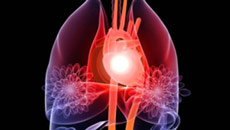People with sleep apnea, in which breathing repeatedly starts and stops during slumber, are likely to have reduced aerobic fitness, even compared with those of similar body mass indices, new research shows.
Sleep apnea patients may have an intrinsic inability to burn high amounts of oxygen during strenuous aerobic exercise than those who do not suffer from the sleep disorder, the findings showed.
"Encouraging patients to exercise more is part of the story, but that is not the whole story," said lead author Jeremy Beitler, assistant clinical professor at University of California, San Diego School of Medicine.
"We believe the sleep apnea itself causes structural changes in muscle that contributes to their difficulty exercising," Beitler added.
For the small yet significant study, researchers performed sleep studies of men and women with a range of apnea symptoms.
Fifteen men and women with moderate to severe apnea and nineteen with mild or no apnea were then asked to pedal a stationary bike at incrementally harder resistance levels - similar to what a person would experience climbing up a progressively steeper hill.
The participants were directed to pedal to exhaustion.
From the exercise test results, and previous measurements of participants' resting metabolic rates, scientists calculated each person's VO2 max - a measure of the maximum amount of oxygen the person can uptake during strenuous exercise.
After adjusting for baseline differences, scientists showed that people with sleep apnea had on average a 14 percent lower VO2 max than control subjects.
“This is a big discrepancy,” Beitler noted.
Researchers believe that VO2 max measurements may be an early marker for those who are at higher risk of stroke and heart attack and that VO2 max measurements could motivate early interventions to treat apnea.
The findings appeared in the Journal of Clinical Sleep Medicine.





